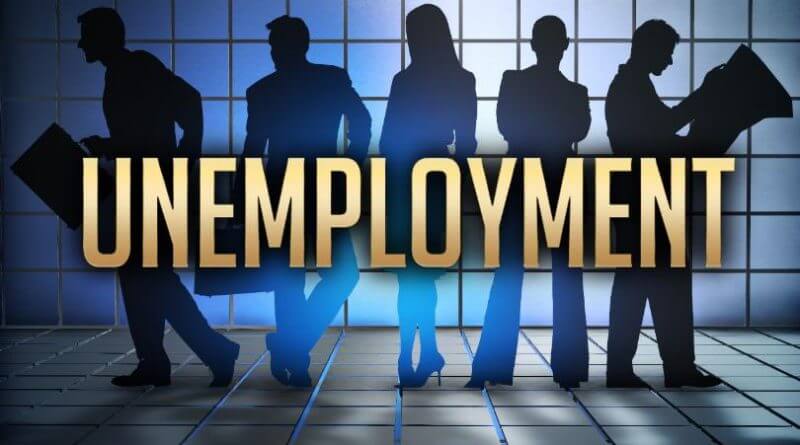Working class in Mississippi face economic uncertainty with large scale layoffs
Working-class Mississippians were already living hand to mouth. Then along came coronavirus
by Anna Wolfe, Mississippi Today
March 22, 2020

Shortly after Michelle Duke learned that the restaurant where she works as a bartender, Georgia Blue, had laid off all employees amid the COVID-19 pandemic, she sent a message to all her coworkers offering to help them apply for unemployment.
Filing a claim on a cellphone is near impossible and many don’t have desktop computers at home. Plus, navigating the website is tough and some are more savvy than others.
Duke has answered questions from 14 of her coworkers, all facing the same conundrum: no income and no idea when they can expect to go back to work.
“We’re a family,” Duke said. “I see them more than I see my family.”
Duke’s coworker Amber Rials visited Duke at home Saturday to use her tablet. With Duke’s help finding the right web page to create an account, Rials entered her information but her login attempts failed. When she tried to reset her password, the site could not process the request. When she tried to create another account, it said she already had one and when she tried to login again, her account locked.
They called the hotline and spent 35 minutes on hold before deciding to try again later. “We’re at a standstill,” Rials said.
Mississippi doesn’t know yet how many people have lost work due to the coronavirus, and the difficulty many face in securing help only adds to the uncertainty.
Rials, who has a 6-year-old son, had purchased a new car the day before the layoffs. She had to return the vehicle, but she won’t get her $400 down payment back for 12 business days. “I have no more income and I’m depending on that money to come back,” she said.
Rials pays $500 for her share of rent in an apartment with a roommate, another server, and she worries she’ll be evicted if they can’t pay.
“We’re in a crisis. They act like they don’t know it’s a crisis. Everybody is going through this, not just me,” Rials said. “No one is working. This is our means of survival.”
The nation is likely heading into a prescriptive recession, meaning the downturn is caused by the necessary steps the nation must take — social distancing, closing businesses and cancelling events — to stop the spread of COVID-19. State Economist Darrin Webb said he doesn’t expect the gradual recovery to begin until 2021, with Mississippi’s economy following national trends but trailing behind as is typical for the state.
One poll from NPR, PBS NewsHour and Marist conducted March 13-14 found nearly 1 in 5 U.S. households had already lost employment or saw their hours reduced as a result of the virus. Mississippi, which didn’t report its first case until March 11 and its first virus-related death Thursday, has seen the effects later than in some other states. But as more businesses cut back — such as restaurants and bars asked to close by the health department and ordered to by Jackson Mayor Chokwe Antar Lumumba — more Mississippi workers will lose paychecks and turn to the unemployment office and other state agencies for assistance. Layoffs and furloughs have begun at Mississippi casinos, Sun Herald reported, which Gov. Tate Reeves ordered to close, and many retail stores also shut their doors to reduce the spread of the virus.
Mississippi is home to nearly 103,000 food service workers, about 27,000 housekeepers and janitors and 78,000 retail salespeople and cashiers, according to 2018 Bureau of Labor Statistics data.
Mississippi is the least prepared to support its workers throughout a recession of any state in the nation, according to a state-by-state analysis by the Center on Budget and Policy Priorities. In particular, the researchers found Mississippi has the single weakest unemployment insurance system, which is funded by employer taxes and provides limited benefits to some workers.
After closing local job centers to the public, Mississippi Department of Employment Security is encouraging workers affected by COVID-19 to apply online to free up the call center, which has been inundated. The department is responding to the demand by putting more employees on the phones, potentially double or triple the normal 50 to 60 workers, by moving employees from other areas of the department and hiring more.
Duke first applied for unemployment, on the advice of her employer, Thursday, but she got a message that “you currently have a pending issue on your claim.” She called the unemployment call center, where she was on hold for an hour before the call disconnected — twice.
By Friday, she was calling every number and emailing every address she could find on the Mississippi Department of Employment website, until someone called her back on Saturday.
“That’s when they admitted that the site was crashing; they don’t have enough phones; they don’t have enough employees,” Duke said.

But they approved her claim; she believes it wouldn’t have happened without her persistence. Duke is the only one of her coworkers to get on unemployment so far; most were kicked out of the website before they could even submit an application.
Beyond issues with the website crashing, almost one-fifth of Mississippi households do not have a computer and nearly one-third don’t have broadband, the federal standard for internet speeds, according to Census Bureau data. Though the state launched in 2014 a “state-of-the-art” app for people to access the services of the unemployment office on their handheld devices, it cannot be used to file an unemployment claim.
Gov. Tate Reeves announced Saturday Mississippi will waive work search requirements for those receiving unemployment until June 27. Normally, a person must file weekly certifications proving they looked for work in order to receive their next payment. The state will also suspend the “waiting week” — which requires a person seeking unemployment to wait until the second week after they’re approved before they start receiving a check.
Reeves also secured an Economic Disaster Declaration from the U.S. Small Business Administration, which will allow small businesses in Mississippi to apply for low-interest federal disaster loans to deal with revenue losses due to the virus.

Federal legislation passed this week, the Families First Coronavirus Response Act, provides paid sick and family leave and free coronavirus testing, expands food assistance and offers an additional $1 billion for state unemployment programs. Congress is considering additional legislation from Republicans, the CARES Act, which would provide $1,200 payments to every adult who earns under $75,000, plus $500 for children. But under the plan, people earning less than $2,500 would only receive $600.
Five democratic Senators sent a letter to state governors and workforce agency administrators March 18 after President Donald Trump approved the coronavirus response act, urging each state to act on its ability to further assist displaced workers.
“This is not only a matter of economic security,” they write, “but one of public health, as workers who cannot access unemployment benefits are likely to try and find work even when the costs to public health may be severe.”
The unemployment provisions in the Families First act will not help those who don’t qualify for the benefit, such as the self-employed, contractors and those in the “gig economy” with sporadic work histories. Federal lawmakers continue to work on additional legislation that would address this gap, but states may expand eligibility on their own.
“Given the severity of the crisis, we ask you to do whatever is possible to extend support to workers who do not fit into the usual framework of unemployment compensation. It is critical that there be no delay in using your existing authorities to support these workers to the greatest extent possible.”
Employment Security released a statement Friday saying it “is modifying existing unemployment compensation rules to allow workers to file a claim for unemployment benefits” if they are affected in specific ways by COVID-19, but it did not say if those workers would actually become eligible for the benefits or the specific ways it had expanded eligibility for these workers. Reeves did not say in his announcement if the state would expand eligibility or use any of the federal aid to increase weekly unemployment payments, which at a max of $235 a week, are the lowest in the nation.
That’s less than Duke and Rials may make on one day of serving or working a private party. “It won’t pay my bills,” Rials said.
If Mississippi does not take steps to deliver the assistance to these impacted workers, it could leave money on the table. The new federal act specifies that a state may only receive the second half of the increased funding for unemployment benefits if it shows its intent to ease eligibility requirements and access to the benefits.
The 2009 Recovery Act Congress passed in response to the Great Recession provided federal funds so that states could modernize their unemployment insurance systems, but Mississippi, along with just five other states, adopted none of the reforms, drawing none of the federal funds down, according to the Center for Budget and Policy Priorities report.
“Now they’re seeing the effects of it,” Duke said.
The report also states that the unemployment system in Mississippi is “barely functioning, reaching less than 10 percent of unemployed workers.”
Employment Security Director Jackie Turner said she is confident in the technology the agency relies on to administer unemployment benefits. As for the amount Mississippi offers or the eligibility requirements, she said, the department is simply enforcing existing state laws.
Mississippi’s comparatively meager public assistance system means that a whole segment of the state’s population, including the nearly 1-in-5 living in poverty, already know the struggle of finding their place in an economy that doesn’t work for them. Wages in Mississippi have not kept up with inflation and less than 2 percent of positions available on the state’s job board pay more than $50,000 — the threshold workforce leaders have used to qualify a “good job.” Despite political rhetoric, there are more people looking for work in Mississippi than jobs available, though until recently, the opposite was true nationally.

Harveeta Mosely has been searching for work long before the economic fallout from COVID-19 hit Mississippi. “I’ve been toughing through this for a while with unemployment, so I’m not in a panic about it,” Mosely said. “When you’ve already been experiencing it, it doesn’t create a panic inside of you.”
She visited the Jackson WIN Job Center, operated by Employment Security, Wednesday to explore job openings since her computer is broken and the libraries had closed in response to the virus. The doors were locked and a sign notified visitors that the building was only open for people who had an appointment.
In the parking lot, she called an operator with the department, who told her they weren’t scheduling any more appointments. Mosely, who spent much of her adult life at home raising three children, has endured long stretches of unstable employment, working for temp agencies to tide her over.
In times of struggle, Mosley turns to her friends, family and community groups for help because she knows from experience that the state’s welfare agencies won’t.
“I haven’t been able to receive much public assistance,” she said. “I have been turned down for things that I feel that I have qualified for … People that actually qualify are being turned down for nonlegitimate reasons.”
Temporary Assistance for Needy Families, a cash benefit for which Mississippi approves very few families, is one particularly troubled program. Six weeks ago, agents with the auditor’s office arrested the head of the state’s welfare office and five others for allegedly embezzling more than $4 million from TANF, with many more millions potentially misspent.
One purpose of the program is to provide time-limited cash assistance to low-income families during an emergency, so some have looked to the program to supplement the current economic recovery efforts. Tennessee Gov. Bill Lee proposed using its unspent TANF reserve, which had ballooned to higher than $730 million, to issue monthly payments to families affected by coronavirus-related employment losses — up to $1,000 for a family of five, the Tennessean reported.
Before 2017, Mississippi had also avoided spending much of its TANF grant, which is $86 million a year, and had built up a reserve of almost $40 million. It began spending dramatically more, mainly with the help of two nonprofits, one at the center of the alleged scheme, so that the state had just $8 million left by the end of 2018, the most recent year for which data is federally available.
Human Services did not provide the current reserve amount to Mississippi Today but said it was working with its federal partners to see how it could use any TANF funds, for which the agency has some discretion on how to spend, for coronavirus-related relief.
Rep. Jarvis Dortch, D-Jackson, proposed a similar plan inside a resolution Tuesday, but it was not considered before lawmakers postponed the session. They won’t be back until April 1, barring another delay.
Mississippi lawmakers did pass a bill authorizing local governments to continue paying state workers who may be placed on leave due to closures, but killed amendments from Democratic lawmakers to extend similar protections to private workers. Lt. Gov. Delbert Hosemann pointed to federal legislation that would address the needs of those workers.
This article first appeared on Mississippi Today and is republished here under a Creative Commons license.






